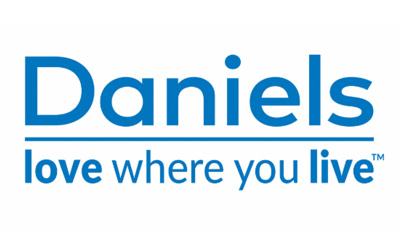You can probably count on one finger the number of feisty community activists who became major property developers. But that’s Mitchell Cohen, a guy who literally marched on city hall in early-1970s Montreal to protect the rights of evicted tenants, then a decade later joined up with developer John Daniels, the former Cadillac Fairview CEO who’d started his own company. Since 1984, the soft-spoken Cohen, who is also a songwriter, has kept his profit motive tuned to his social conscience. No project exemplifies that better than the Regent Park Revitalization, which, over 17 years, has gradually healed a wound in Toronto’s downtown. By ensuring that Daniels Corp. includes affordable and accessible housing in its condo, rental and community developments, Cohen has done more than construct 35,000 homes over his career. He’s built a strong argument that development can work for everyone. We met in Cohen’s light-filled Queens Quay office, overlooking Toronto Harbour.
Interest rates are higher than they’ve been in decades, and everyone’s worried about a recession. What’s this economic environment like for a developer?
The environment is tough. Costs were already going up—land cost, development charges, the cost of delivery or creating a home. Then the pandemic hit, and costs were driven up even further. Young people in the industry haven’t seen this, but I’ve been through it three or four times, and there will be an end. The challenge is to be patient and to understand that we’re not dependent on one kind of product. Yes, we build condominiums, and today that market is very challenged. But we’re also building rental housing, and the rental market has been good and is gonna be even better.
We’re in the midst of a housing affordability crisis in Canada. Most people blame supply. You’re one of the suppliers, so, why don’t we have enough homes?
I’m perhaps one of the few who doesn’t blame supply. You’ve seen the cranes in our marketplace for the past 20, 25 years; there’s been enormous supply. The real challenge is that there hasn’t been investment in affordability. The federal government got out of affordable housing in 1984. In Ontario, the province got out in 1995 with the “common sense revolution.” (1) The thesis was that an unfettered free market would create so much housing that there would be this trickle down. Well, guess what? That has not happened. The cost of housing continues to go up. We believe government needs to spend money to offset some of the costs, with a requirement to bring down the cost for a certain percentage of units within every new building and integrate affordable housing into new communities. That hasn’t happened.
What about investor demand—overseas buyers snapping up units? Is that part of the problem?
Or is it part of the solution?
Why would it be part of the solution?
Because when all those condos were getting built, there was no money to create rental housing. Rental buildings weren’t getting built in the 2000s and early 2010s because the economics didn’t work. So, someone who invested in a condo unit provided a rental unit. Now, had government said, “If you want to build that density, then 10% or 15% or 20% of the units have to be affordable, and here are the criteria for affordability,” the developer would have said, “Great. I want the density; I’ll provide the affordability matrix you’re asking for.” But government didn’t ask that. There was no national housing strategy until 2017. Then all of a sudden they said, “We’re gonna put $80 billion behind it.” And they rolled out programs that didn’t work.
